Offering uplifting fare with a backdrop of Christmas, we turn the clock back more than 80 years to the Ernst Lubitsch romantic comedy The Shop Around the Corner (1940). The film is based on the Hungarian play Parfumerie (1936) by Miklós László, with the screenplay by Samson Raphaelson and Ben Hecht.
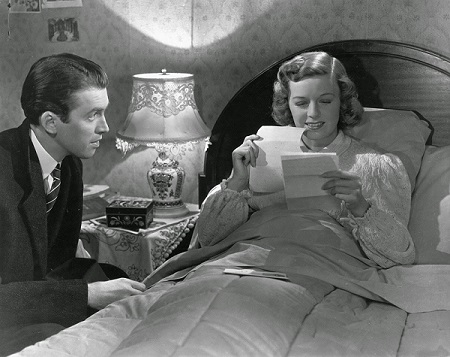
Klara Novak and Alfred Kralik are introduced to us as a new and a tenured employee of a store owned by Hugo Matuschek named Matuschek and Company. Klara and Alfred have clearly different sensibilities for how best to help Hugo choose merchandise and operate his store, which spills over to their relationship over time at the store. Margaret Sullavan, James Stewart and Frank Morgan star as Klara Novak, Alfred Kralik and Hugo Matuschek, respectively.
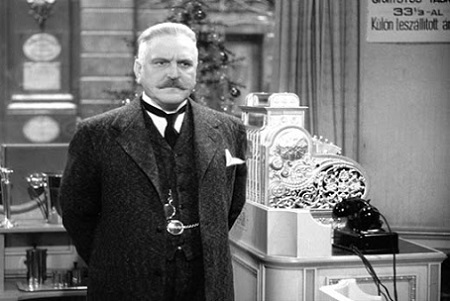
A series of supporting salespeople, delivery staff and others support the operation. The staff includes Pirovitch, a family man portrayed by Felix Bressart, womanizer Ferencz Vadas, as portrayed by Joseph Schildkraut, saleswoman Ilona Novotny as portrayed by Inez Courtney, clerk Flora Kaczek as portrayed by Sara Haden and the precocious yet ambitious delivery boy Pepi Katona, as portrayed by William Tracy.
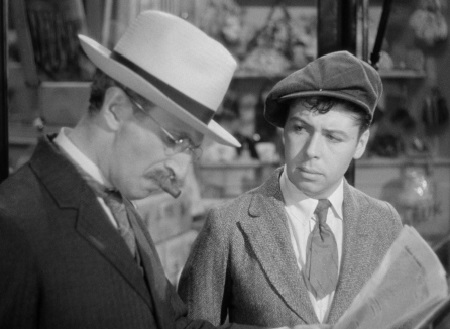
The groundwork for the film begins with the established protocols of the store along with a difference of opinion over the selling of cigarette boxes, which is the occasion of Klara Novak and Alfred Kralik unwittingly coming into conflict. That Alfred and Klara secretly are falling for one another as anonymous love interests through the mail leads to a significant segment of the romantic comedy of the film. That the cigarette boxes cause turmoil between Kralik and Hugo Matuschek calls a secure working arrangement for Kralik into doubt.
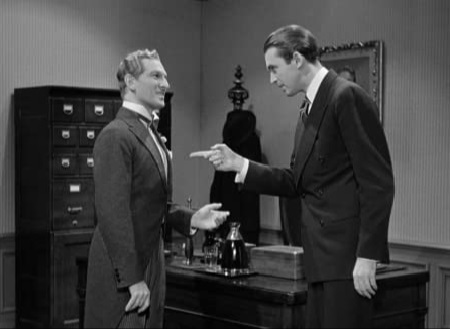
A serious complication within the operation of the store takes the disagreement between Kralik and Matuschek down a path that rearranges the dramatic turns of the movie into a more uplifting turn for Alfred Kralik. Kralik satisfyingly gets to decide the fate of a distasteful member of the staff while also getting to exert additional influence over the fate of the store as well as his budding romance. Pepi Katona earns the right to shine for a moment in the growing optimism of shifting fortune.
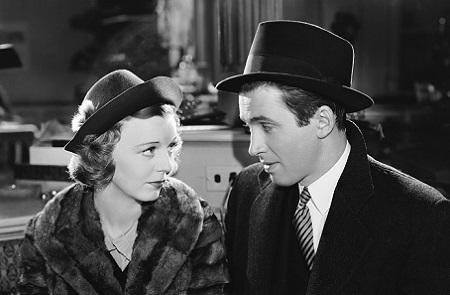
An uplifting romantic comedy set against the backdrop of Christmas simply must come to resolution on the night before Christmas. The store sees a positive under the guidance of Alfred Kralik. Klara Novak and Alfred Kralik take the moment to see through some firmly difficult interpersonal views to speak the truth to one another. Happiness comes through the other side of a story that sees fit to invite doubts and obstacles to keep what feels right from fruition.
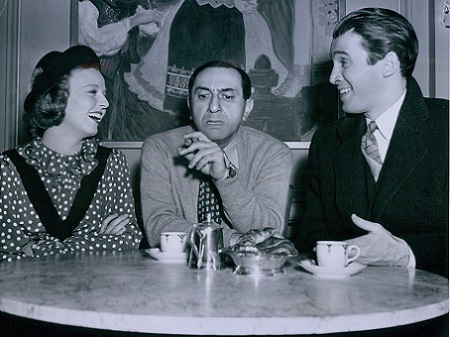
The movie You’ve Got Mail (1998) borrows from The Shop Around the Corner by using the notion of anonymous correspondence between two people leading to their falling in love being an important plot point. The notion worked in 1940 and largely worked in 1998. The highly satisfying story coupled with highly satisfying performances within The Shop Around the Corner as directed by Ernst Lubitsch leads me to grant the movie 4.25-stars on a scale of 1-to-5.
Matt – Saturday, December 11, 2021
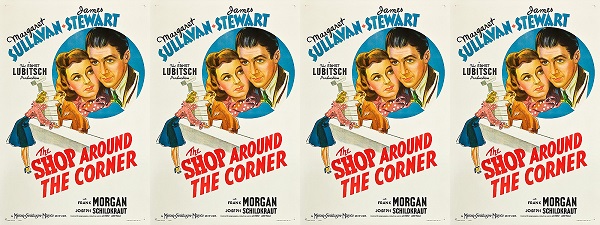







 (Donna Reed as Mary Hatch, left, & James Stewart as George Bailey)
(Donna Reed as Mary Hatch, left, & James Stewart as George Bailey) (James Stewart as George Bailey, left, and Samuel S. Hinds as Peter Bailey).
(James Stewart as George Bailey, left, and Samuel S. Hinds as Peter Bailey). (Lionel Barrymore as Mr. Henry F. Potter).
(Lionel Barrymore as Mr. Henry F. Potter). (
( (Beulah Bondi as Mrs. Irene Bailey, left, and James Stewart).
(Beulah Bondi as Mrs. Irene Bailey, left, and James Stewart).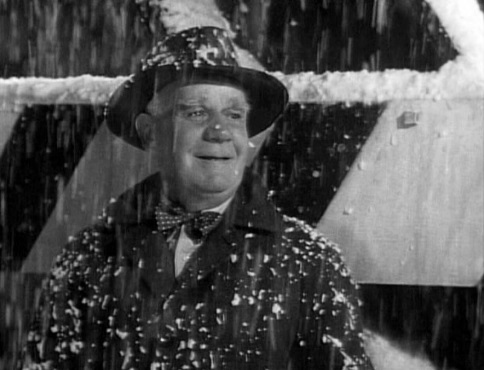 (Henry Travers as Clarence Odbody).
(Henry Travers as Clarence Odbody).